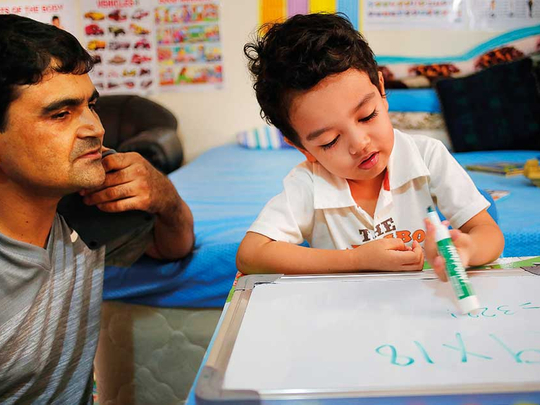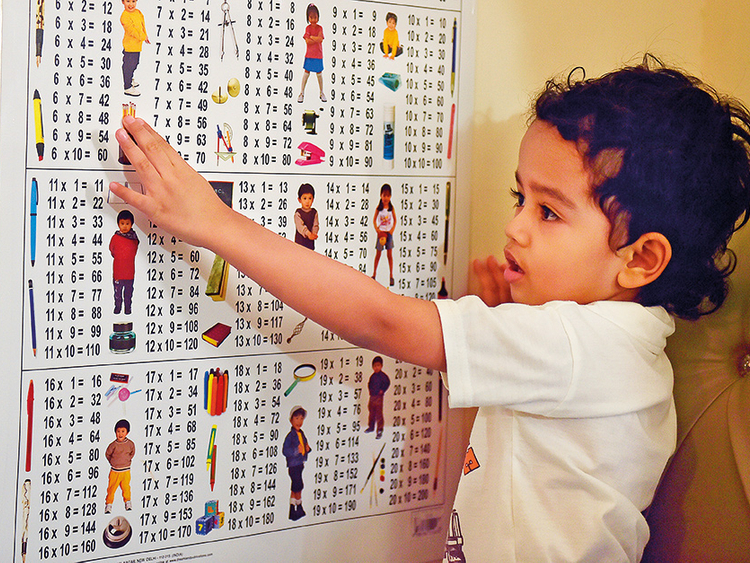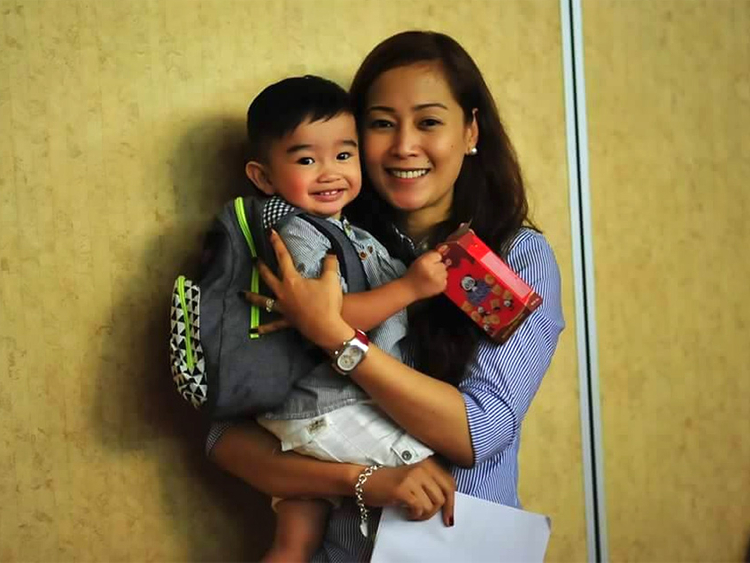
Dubai: Meet four-year-old Ayrus Nyl Mainali, a self-taught whiz kid who can mentally multiply double-digit numbers and calculate square roots and cube roots faster than his parents can key them in the calculator.
The young Sharjah resident got interested in numbers when his Filipina mother, Marilyn Tanola, showed him a video countdown of the top 50 performances of his favourite basketball player on YouTube.
“He got interested in numbers and even in counting backwards because of that,” Tanola, a stay-at-home mum, told Gulf News during a visit. “He started identifying letters and pictures at 11 months because we used to read books to him. Before he turned three, he could already type words on the laptop and he started searching videos on YouTube, particularly videos on multiplication.
“He is self-taught. He learnt all these multiplication tables on his own and from his charts in his room. Now, he can multiply double digits from tables 1 to 40. He can also do a few square roots and cube roots.”
Surya Prasad Mainali, Ayrus’ father from Nepal, said Ayrus will start school this September as a KG2 student because he was allowed to skip KG1 during his assessment.
At his age, Ayrus also has excellent spelling skills. Gulf News asked Ayrus random words to spell like mushroom, olives, pineapple, United Arab Emirates and the four-year-old correctly spelt each of them at one go.
Lucas Alfonso Velasco |
Like Ayrus, Lucas Alfonso Velasco, now two years and 10 months, also learnt to read early through his controlled screen time on YouTube mixed with the help of flash cards and books.
“He would watch nursery rhymes and other educational videos on YouTube and he retains them in his memory. The visuals are also engaging for him,” Roselle Mueco-Velasco, Lucas’ mother, told Gulf News.
“He can now read sentences and is now learning different colours. He can also identify non-basic shapes like the rhombus, trapezoid, parallelogram, hexagon until decagon.”
Sahar Riad, managing partner at The Brain Workshop, a brain training centre in Dubai for children and adults, said children learn much more early in life so the more you expose them to different learning opportunities, the more they will pick it up.
“Today’s parents read earlier and more often to their children, play games with them to develop their thinking, enrol them to selected nurseries and so on. This develops their ability of analytical and hypothetical thinking,” Riad told Gulf News.
Asked if children are learning “faster” now than average kids their age generations ago, Riad said it cannot be generalised that way since an individual’s learning ability is strongly related to his cognitive skills and also to other factors such as better accessibility to learning resources, more devotion from parents to their learning, among others.
Riad said parents can take advantage of the brain’s neuroplasticity as it changes and adapts according to the experiences that we go through, the environment we interact with, and the training we undergo.
“Applying the principles of neuroplasticity, a brain of a child who is constantly being read to, spoken to in an intellectual manner, offered educational toys, given the opportunity to explore and interact with nature, being exposed to music and art … etc will form neural pathways that reflect all these experiences.”
Sahar Riad’s tips to maximise your child’s potential
Take the time, research and then choose what suits your child’s personality and truly aids with his/her development without overloading the child. The same applies in choosing activities.
Let kids have free playtime as it’s important for their development as children learn through inventing their own games, using their imagination, role playing with their friends.
Allow kids to get bored occasionally as boredom motivates them to find something to do which sparks their creativity, and helps their problem-solving abilities, and helps them develop motivational skills that could help them in the future.
Important note: Parents should remember to raise emotionally balanced children. They need to work on developing their children’s own intellectual and emotional intelligence (IQ and EQ) and not just IQ.










